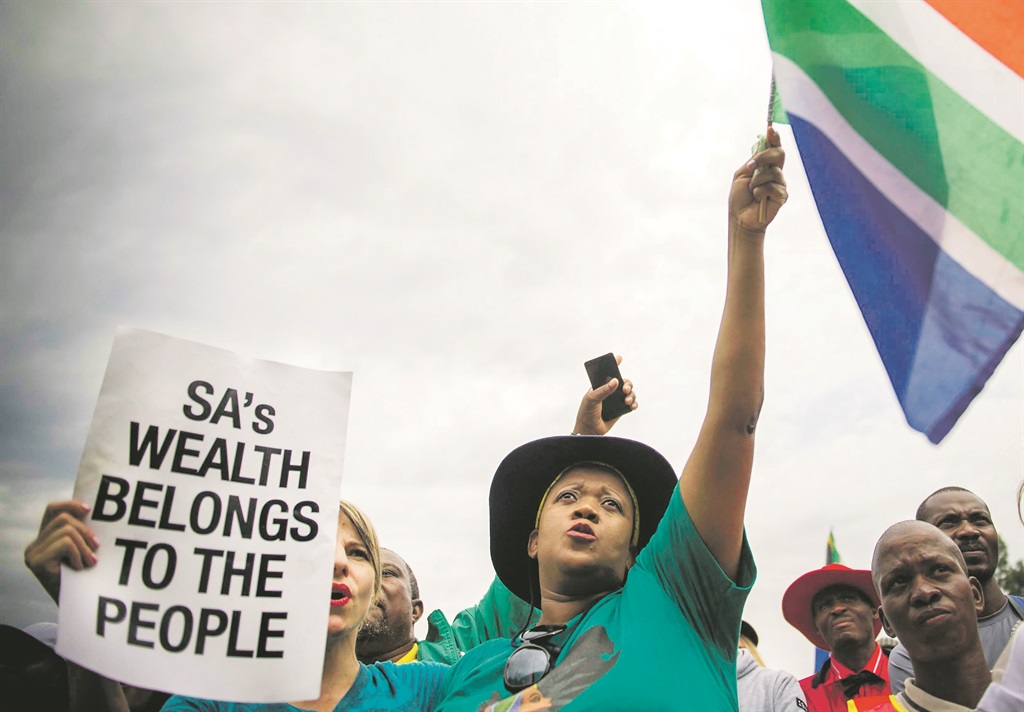
To get SA out of its economic downturn, new report urges labour market reforms and stronger growth policies
South Africans are significantly less free economically, and far less happy, than before.
This is part of the findings of the latest Economic Freedom of the World (EFW) index, which measures the capacity of citizens to make their own economic choices without government interference.
South Africa now ranks 101 out of 162 countries, having dropped two places from its previous position two years ago, said Neil Emerick, an associate of the Free Market Foundation (FMF).
He was speaking at the release of the latest index.
The report, which relates to conditions in 2017, gave South Africa a score of 6.61 out of 10 – better than the previous year’s 6.58.
But Emerick said it was concerning that South Africa had fallen 54 places since 2000.
In that year, South Africa was ranked 47th and was among the top 30% of countries on the list.
“With such an upward trend, South Africa was on track to become one of the world’s most prosperous countries. But instead, in 2019, South Africans have less economic freedom than do residents in 60% of the democratic world,” he said.
“Far from building on its post-apartheid achievement, South Africa and its citizens now have less economic freedom than they gained in the six years following 1994 and democracy.”
Hong Kong and Singapore lead the list with scores of 8.91 and 8.71, respectively. Venezuela is last on the list.
However, according to Fred McMahon, head of research on economic freedom at Canadian think-tank the Fraser Institute, which compiles the index, Hong Kong’s economic freedom is being threatened by China’s aggressive attitude to pro-democracy protesters.
The index is compiled in cooperation with the Economic Freedom Network, a group of independent research and educational institutions in about 100 countries. The FMF is part of this network.
McMahon was recently in South Africa, where he facilitated a workshop for the FMF on improving economic freedom.
Forty-two data points are used to compile the index, which measures the degree of economic freedom in five broad areas, with various subdivisions.
- Government size (113th; 5.77 points)
This division measures government expenditure, top salaries and state ownership of assets. As state-owned enterprises become larger, government decisions crowd out individual decisions and suppress economic freedom.
- Legal system and property rights (84th; 5.05 points)
This division takes into account the independence of the judiciary, the protection of property rights and the legal enforceability of contracts.
- Fiscal health (99th; 8.17 points)
Inflation plays a large role here, as well as the freedom to have foreign-currency bank accounts.
- Freedom to trade internationally (96th; 6.87 points)
This includes the freedom to trade in the broadest sense of the word, including buying, selling, concluding contracts, compliance costs of importing and exporting, limitations on foreign ownership and investment, and capital controls.
- The regulation of credit, labour and business (74th; 7.20 points)
Emerick said South Africa’s decline in economic freedom had predictable consequences, such as high unemployment and the country currently witnessing a dramatic human and capital flight as individuals seek to invest and live in countries with greater levels of economic freedom.
If policymakers want to reverse these trends, they will have to implement policies that advocate greater economic freedom – for instance, policies relaxing labour laws – as well as tighter policies about property rights.
According to the Fraser Institute’s report, unemployment is not the result of structural problems, but of increasing government interference in the economy and the lives of citizens.
McMahon said that countries with little economic freedom generally had lower average income levels, greater inequality and poverty. And their citizens had a lower life expectancy, with fewer political rights and freedoms.
For example, the index shows that countries in the top quartile of economic freedom have an average per capita GDP of $36 770 (R534 000), compared with $6 140 (R89 134) in the lowest quartile.
In the top quartile, 1.8% of citizens experience extreme poverty ($1.90 a day), compared with 27.2% in the lowest quartile.
And, the Fraser Institute points out, life expectancy in the top quartile is 79.5 years, compared with 64.4 years in the lowest quartile.
“Where people are free to pursue their own economic opportunities and to make their own choices, they are more prosperous, happier and healthier,” said McMahon.
“The report’s happiness index indicates that the more economically free you are, the happier you are – showing that monetary and economic values can still be good,” said Emerick.




 Publications
Publications
 Partners
Partners








